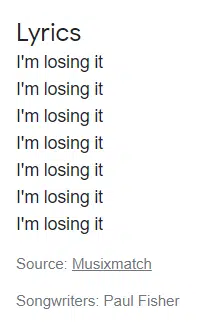- Advertise
-
Subscribe
Stuck on a Loop

Popular music has long been under fire for being too ‘dull’ and ‘repetitive’.
If you share this belief, you are anything but alone. Many feel like the songs topping yearly charts sound like they’re quite literally stuck on a loop. What the contemporary music industry puts on a pedestal is repetitive, to say the least.
Repetition – the recipe for popular music
Aside from how appalled we feel about these songs, it’s been measurable proven to be quite true.
A computer scientist analyzed songs from the 1950s to 2017 to explore whether popular music has gotten more repetitive or whether it’s all in our heads.
Colin Morris came up with the SongSim algorithm, which visualizes patterns of repetitive text. Not only that – spoiler – we haven’t daydreamed about the repetitive lyrics, but echoing and replication go deeper than words.
‘That’s because songs don’t just repeat single words. They also repeat line sequences, at different scales, multiple times throughout a few minutes.’
Another discovery from Morris’s study indicates that the songs that got a taste of the top 10s fame after the 60s were more repetitive than any of the rest.
Part of their roaring popularity is thanks to us, the consumers. Through our streaming, we define what popular music is.
It might sound surprising to some, but music hasn’t just gotten more repetitive – it has become more in demand as well.
Some believe repetition can render songs mindless
The fact that a big chunk of today’s popular music relies on the same four-chord progression (not to mention the reiteration of simple phrases) makes it an unoriginal and mind-numbing element of our culture.

We’ve all gotten ‘I’ve Got A Feeling’ stuck in our heads for hours after hearing it on every other radio station. And who can forget the lyrical genius of ‘Imma Be’?
Unsurprisingly, most songs by the Black Eyed Peas have been criticized for having repetitive lyrics and phrases as their core.
The same goes for countless artists who made it to the top of the charts. Just think about Sia’s ‘Cheap Thrills’. Even Queen B isn’t safe from criticism when it comes to her ‘Single Ladies’ lyricism. It seems like popular music has some type of patterned gist.
We actually love repetition – even if we don’t realize it
We might feel dulled out by hearing the same words and beats over and over again for a 3-minute duration. But that doesn’t discredit how those songs are coming up on top of the charts, fuelled by millions of streams.
It seems like repetitive music kind of works. Or at least it has a good hook.
Patterns’ repetition in the same recording, from drum beats to drops to duplicated choruses, gives us a sense of familiarity. Weirdly enough, it has the power of amplifying our listening experiences.
And even beyond that: it’s catchy. It makes memorizing the song lyrics easier, even if you don’t intend to hum them.
It’s not just pop music
It’s not just pop music that relies on repetition to get its listeners hooked. Music across all genres and cultures employ repetition in an overabundance of ways.
Popular pop music’s exhilarating cousin, EDM, also falls prey to the same judgments.
Songs like Fisher’s ‘Losing It’ became one of the biggest worldwide dance hits, reigning as No.1 over Beatport’s DJ store charts for 21 weeks. No wonder why it became a staple of music festivals and parties alike.
However, when one takes a closer look at the song’s lyrics, it doesn’t seem all that elaborated:

But it’s important to remember that there’s more to songs than their lyrics.
Many have risen in defense of ‘Losing It’ as the dance anthem of the decade. Its fans credited the song’s build-up snare repetition until a solid payoff drop, bringing a familiar part of the song back to the listener.
Repetitive music might not be your cup of tea – and maybe you instantly turn the radio off at the first hint of ‘Losing It’.
But the reason music continues to be produced in this way is because, quite frankly, it’s catchy. And it seems we like it like that.






